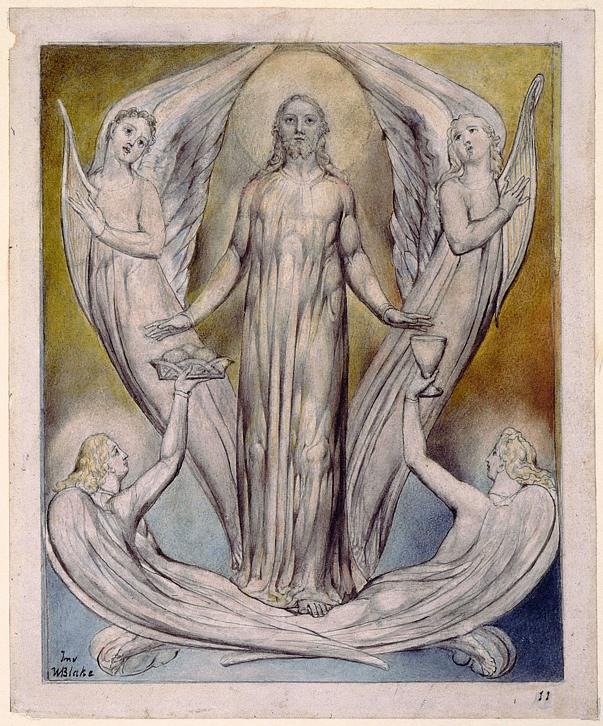Who countest the steps of the sun,
Seeking after that sweet golden clime
Where the traveller’s journey is done;
Where the youth pined away with desire,
And the pale virgin shrouded in snow,
Arise from their graves and aspire;
Where my sunflower wishes to go."
(Songs of Experience, Erdman 25)
Frye tells us that this may be seen to reflect biblical
passages about work, such as "work for the night is coming".
"In Ah! Sunflower the flower that turns its face to the sun
through its passage across the sky is the emblem of all those
who have repressed or frustrated their desires to the point
at which they all consolidate into a desire for the sunset of death".
Once again:
"Seeking after that sweet golden clime
Where the traveller's journey is done."
(from Frye in Words with Power p. 90-91)
"The passage of the sun symbolizes our journey through life
(through this vale of tears.) Focusing on the sun, as the
flower does, indicates preoccupation with the objective, the
material; Blake considered that a much lesser way to live.
In Visions of the Last Judgment Blake wrote:
"Error is Created Truth is Eternal Error or Creation
will be Burned Up & then & not till then Truth
or Eternity will appear It is Burnt up the Moment Men
cease to behold it I assert for My self that I do not
behold the Outward Creation & that to me it is
hindrance & not Action it is as the Dirt upon
my feet No part of Me. What it will be Questiond When
the Sun rises do you not see a round
Disk of fire somewhat like a Guinea O no no I see an Innumerable
company of the Heavenly host crying Holy Holy Holy is the Lord
God Almighty I question not my Corporeal or Vegetative Eye any
more than I would Question a Window concerning a Sight I look
thro it & not with it." (VLJ-N95; E565-6)
 |
| Wikimedia Commons Milton's Paradise Regained Christ Ministered to by Angels |
Ah! Sunflower also reflects a passage in Gates of Paradise:
"But when once I did descry
The Immortal Man that cannot Die
Thro evening shades I haste away
To close the Labours of my Day"
(Gates of Paradise 39-42; E269)
.
No comments:
Post a Comment